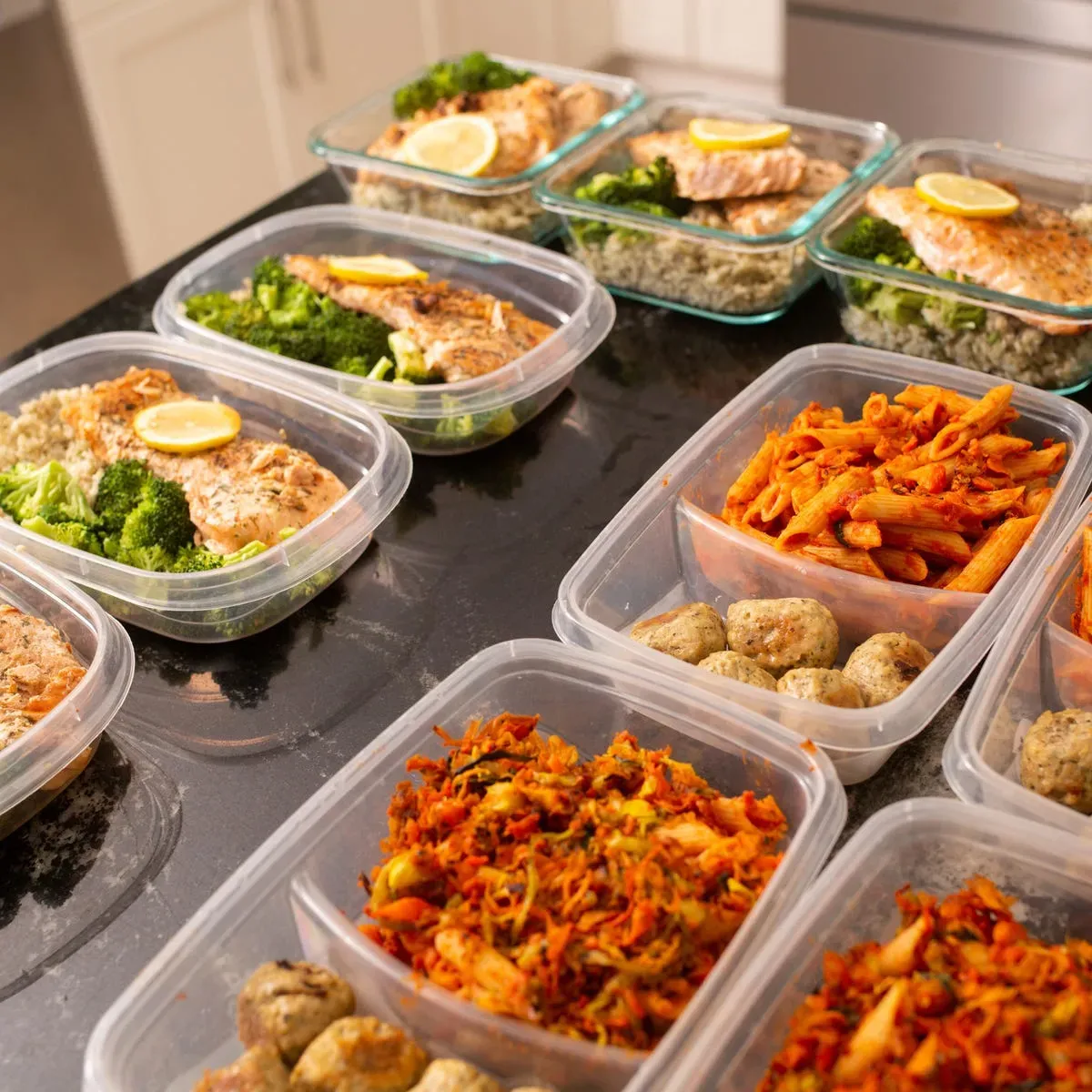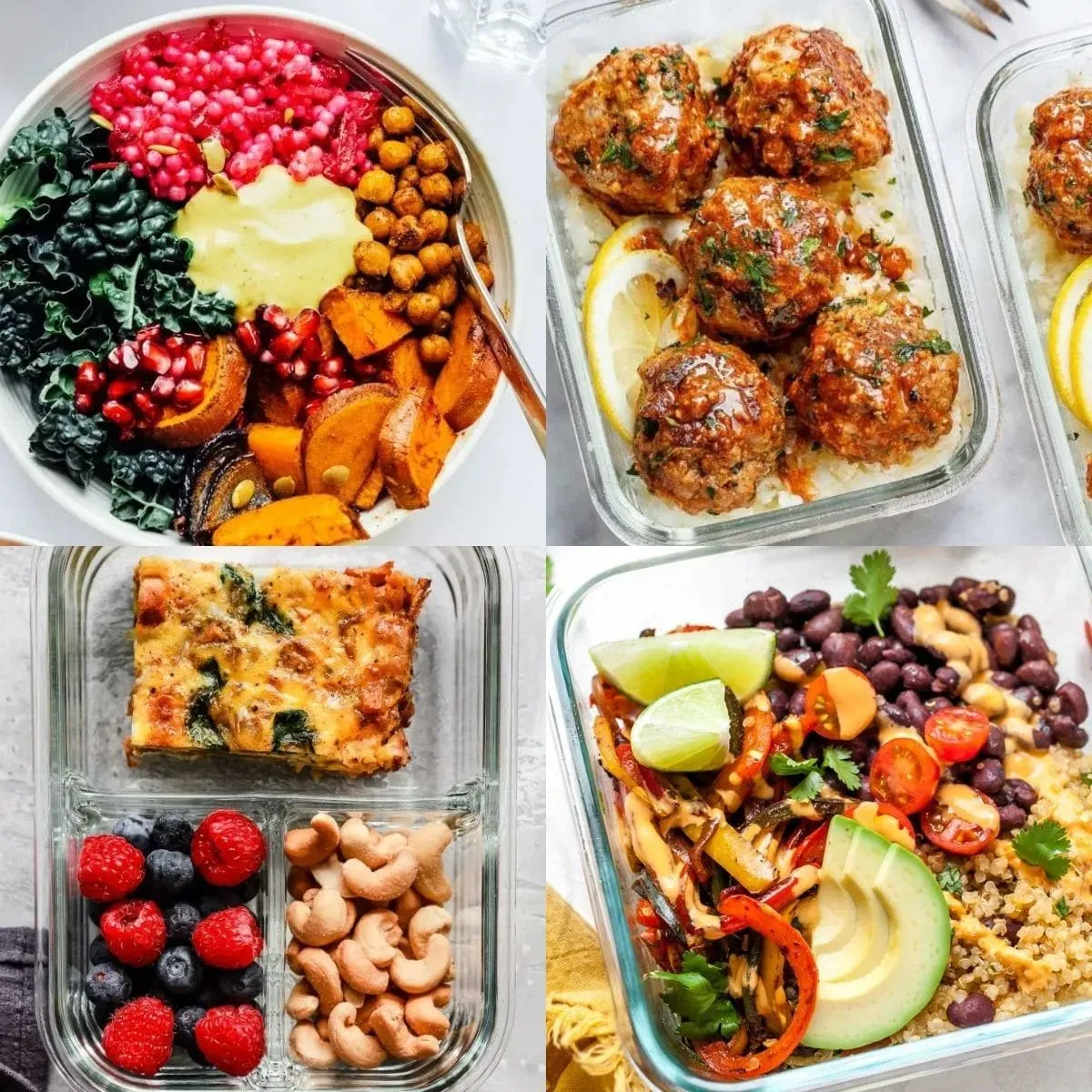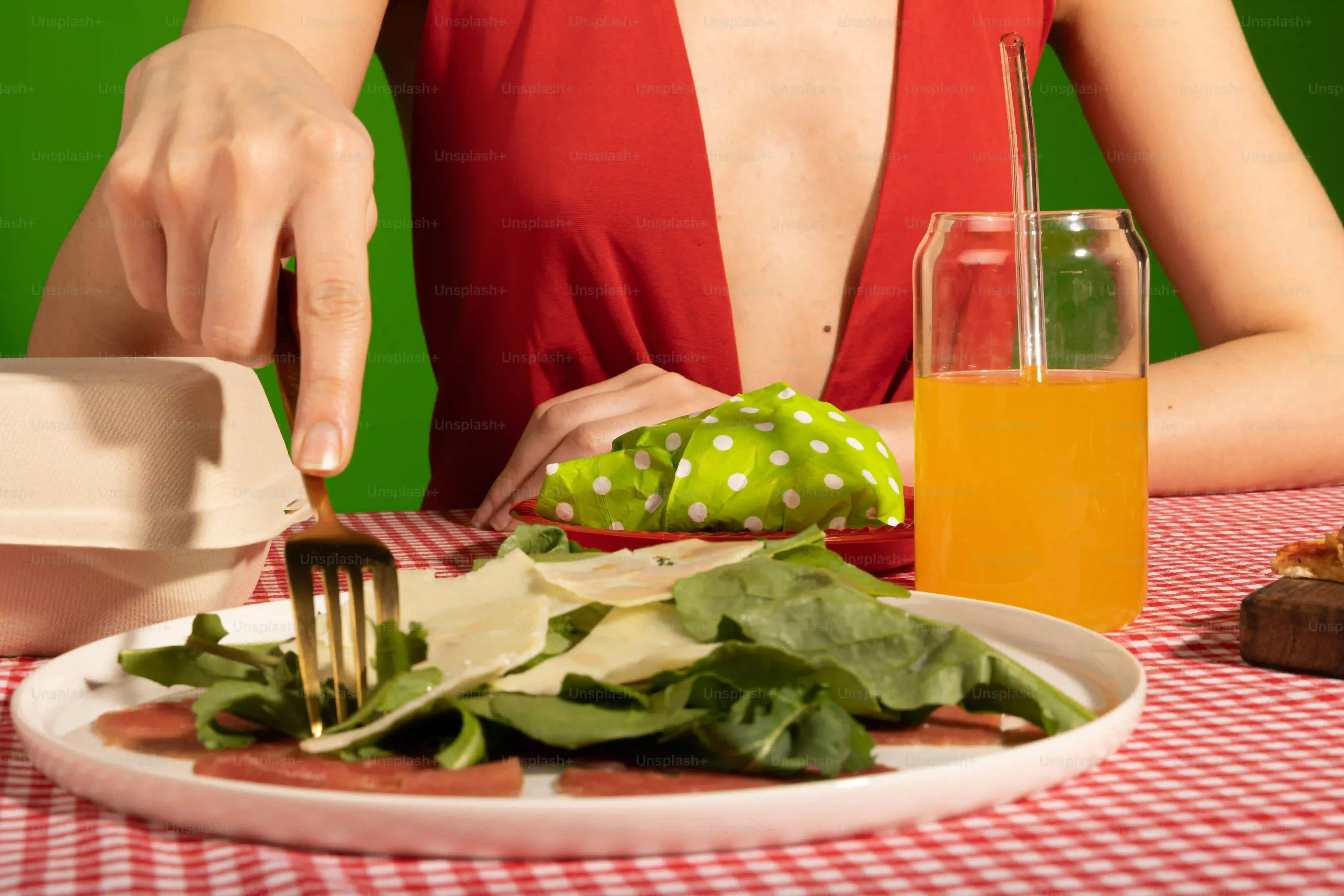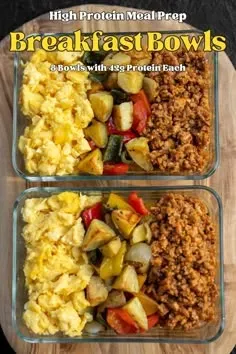Table of Contents
Meal prep. It sounds like the ultimate adulting superpower, right? Spend a few hours on Sunday, fill some plastic containers, and bam! Healthy, ready-to-eat meals for the week. The internet is flooded with images of perfectly portioned chicken and broccoli, promising efficiency and weight loss. But what if that same dedication to planning is actually working against you? What if your quest for convenience has led you down a path of unhealthy meal prep ideas?
When Your Meal Prep Turns Into Unhealthy Meal Prep Ideas

When Your Meal Prep Turns Into Unhealthy Meal Prep Ideas
How Good Intentions Go Sideways
so you decided to get your life together. You bought the containers, found some recipes online, and dedicated a chunk of your weekend to cooking. This is the start of meal prep for many, a noble pursuit aiming for health and efficiency. You picture yourself breezing through the week, never having to make a last-minute, questionable food choice because you're starving and unprepared. It feels empowering. But somewhere along the line, for many, this smart system can subtly transform. What begins as a tool for healthy eating can easily devolve into a routine built on unhealthy meal prep ideas, often without you even realizing it.
The Convenience Trap and Nutrient Narrowing
One of the quickest ways meal prep veers into unhealthy territory is sacrificing nutritional diversity for convenience. Think about it: cooking one giant batch of chicken and rice means you eat chicken and rice for days. While simple, relying on the same few ingredients over and over severely limits the range of vitamins, minerals, and fiber you consume. It's easy to fall into a rut with just a couple of go-to meals because they're simple to scale up. Suddenly, your plate looks the same every lunchtime, lacking the vibrant colors and varied textures that signal a truly nourishing diet. This isn't just boring; it's actively detrimental to getting all the good stuff your body needs.
Another pitfall involves the choices made *within* the prep. Loading up on processed sauces, relying heavily on refined grains, or using excessive amounts of unhealthy fats just because it makes a dish reheat better are common slips. A meal prepped dish isn't automatically healthy just because you made it at home. If your weekly menu consists of giant portions of pasta with creamy sauce, fried chicken tenders you reheated, or burritos stuffed with cheese and white rice, you're likely dealing with unhealthy meal prep ideas masquerading as healthy habits.
- Using excessive amounts of oil or butter
- Loading up on refined grains (white rice, white pasta)
- Adding too much cheese or creamy sauces
- Relying on processed ingredients (pre-made sauces, processed meats)
- Cooking everything the same way (e.g., always frying)
- Prepping overly large portion sizes
When Flexibility Disappears
Beyond the plate itself, the rigidity of obsessive meal prep can create an unhealthy relationship with food. If you've prepped five identical meals and you feel obligated to eat them regardless of your hunger level or what your body is craving, that's a problem. Life happens. Sometimes lunch plans come up, or you just don't feel like chicken and rice *again*. When your meal prep becomes a strict, inflexible rule rather than a helpful guide, it removes the ability to listen to your body's hunger cues or enjoy spontaneous social eating. This 'all or nothing' mindset is a classic sign that your attempt at healthy eating has twisted into something unsustainable and potentially harmful.
The Monotony Trap: Why Eating The Same Thing Breeds Unhealthy Habits

The Monotony Trap: Why Eating The Same Thing Breeds Unhealthy Habits
so you've got your week of identical meals lined up. Chicken, rice, broccoli. Or maybe lentil soup. Or perhaps the ever-popular turkey meatballs and zucchini noodles. Initially, it feels great – organized, efficient, virtuous even. But after day three, maybe day four if you're feeling particularly stoic, a subtle dread starts to creep in. Lunchtime rolls around, and you open that container, seeing the same familiar contents for the umpteenth time. This isn't just about your taste buds staging a revolt; this dietary repetition, this "monotony trap," does more than just bore you to tears. It actively works against your health goals and can lead to unhealthy habits forming without you even noticing. When your diet lacks variety, you miss out on the full spectrum of nutrients different foods offer, and let's be honest, sheer boredom makes you way more likely to ditch the whole plan for a pizza on Friday night.
What happens when you eat the same meals day in and day out?
- Nutrient deficiencies can develop over time.
- Your gut microbiome suffers from lack of diverse fibers and plant compounds.
- Boredom makes you more susceptible to cravings for exciting, often less healthy, foods.
- You miss out on the pleasure and social aspects of trying new dishes.
- It can foster an "all or nothing" mindset around food.
Gut Check: How Unhealthy Meal Prep Ideas Harm Your Microbiome

Gut Check: How Unhealthy Meal Prep Ideas Harm Your Microbiome
let's talk about your gut bugs. You've got trillions of them down there, a whole ecosystem known as your gut microbiome, and they are far more important than most people realize. They influence everything from digestion and nutrient absorption to your immune system and even your mood. And guess what fuels this complex community? The food you eat, specifically the variety of fibers and plant compounds. When you fall into the pattern of unhealthy meal prep ideas, eating the same few dishes day after day, you are essentially starving large segments of your gut bacteria. Different bacteria species thrive on different types of fiber found in various plants. A monotonous diet provides a limited menu for your microbial friends, leading to a less diverse, potentially less resilient gut community. Think of it like trying to run a vibrant city on just one type of fuel source – things start to break down eventually.
Finding Balance: Meal Prep Without The Obsession

Finding Balance: Meal Prep Without The Obsession
Escaping the All-or-Nothing Trap
So, you've seen the dark side of those rigid, identical containers and the trap of unhealthy meal prep ideas. The good news is, you don't have to throw the baby out with the bathwater. Meal prep itself isn't the enemy; the obsessive, inflexible approach is. Finding balance means shifting your mindset from preparing every single meal perfectly for the week to using meal prep as a helpful tool, not a strict overlord. It's about making your life easier and healthier, not creating a new source of stress and dietary boredom. Think of it less as a rigid schedule and more as giving yourself a head start.
Partial Prepping and Smart Shortcuts
Real balance often comes from partial prepping. Instead of full meals, focus on preparing components. Cook a batch of grains (quinoa, brown rice), roast a tray of mixed vegetables, grill some protein (chicken breast, fish, tofu), and wash and chop greens for salads. This way, you have building blocks ready, but you can mix and match them throughout the week to create different meals. Maybe Monday is chicken and roasted veg, Tuesday is a grain bowl with the same veg and some beans, and Wednesday uses the leftover chicken in a quick stir-fry. This keeps things interesting and prevents the nutrient narrowing that comes with eating the same exact dish repeatedly.
Prep Component | How it Adds Flexibility | Avoids Unhealthy Trap |
|---|---|---|
Cooked Grains (Quinoa, Brown Rice) | Base for bowls, sides, salads | Not just white rice every day |
Roasted Mixed Vegetables | Side dish, added to pasta, salads, wraps | Variety of nutrients & fibers |
Grilled or Baked Protein | Added to salads, pasta, tacos, eaten alone | Use lean sources, control cooking method |
Washed & Chopped Greens | Quick salads, added to smoothies or soups | Easy way to boost greens intake |
Listening to Your Body, Not Just Your Calendar
Ultimately, sustainable healthy eating involves listening to your body. If you've prepped a specific meal but you're genuinely not hungry for it, or you're craving something else that's equally nutritious (or even a planned indulgence), it should be okay to deviate. The rigidity of feeling obligated to eat prepped food, even when it doesn't align with your hunger or social plans, is a key factor in developing unhealthy meal prep ideas and a disordered relationship with food. Give yourself permission to be flexible. Having prepped components means you can still throw something together quickly, even if it wasn't the exact meal you envisioned on Sunday. This flexibility removes the pressure and makes healthy eating feel less like a chore and more like a natural part of your day.
Making Meal Prep Fun, Flexible, and Not Unhealthy

Making Meal Prep Fun, Flexible, and Not Unhealthy
Injecting Flavor and Fun Back into Your Routine
Alright, so we've established that eating the same bland chicken and broccoli for five straight days is a fast track to dietary hell and probably contributes to your unhealthy meal prep ideas. The goal isn't to become a culinary robot; it's to make healthy eating manageable and enjoyable. So, how do you keep the convenience of prepping without the soul-crushing monotony? Simple: think variety from the start. Don't just pick one protein, one carb, and one veggie. Choose maybe two proteins, two different types of complex carbs (quinoa and sweet potatoes, perhaps?), and a mix of several vegetables that can be cooked in different ways. Roasting some veggies while steaming others gives you different textures and nutrient profiles. Having pre-cooked chicken *and* some hard-boiled eggs means you aren't locked into chicken for every single meal. It takes a little more planning upfront, maybe an extra pan, but it pays dividends in preventing boredom and ensuring you hit a wider range of nutrients throughout the week. This small shift is key to Making Meal Prep Fun, Flexible, and Not Unhealthy.
Embracing Imperfection and Listening to Cravings
Let's be real, life isn't a perfectly curated Instagram feed of meal prep containers. Sometimes you just crave a specific food, or a friend invites you out for lunch. Trying to force yourself to eat your prepped meal when your body or social calendar says otherwise is where healthy habits go to die. A major part of Making Meal Prep Fun, Flexible, and Not Unhealthy is giving yourself permission to deviate. Your prepped food is there to support you when you need it, not to trap you. Maybe you prepped four lunches, but ate out twice? Great! Now you have two ready-to-go meals for the *next* week, or for busy dinners. Don't view it as a failure; view it as a helpful buffer. This flexibility removes the pressure that often leads people to just give up entirely when their rigid system inevitably breaks down. It’s about progress, not perfection, and understanding that healthy eating includes spontaneity and listening to what you actually want sometimes.
Strategy for Flexibility | How it Helps |
|---|---|
Prep components, not full meals | Mix and match for variety daily |
Cook 2-3 protein sources | Prevents eating the same protein repeatedly |
Roast & steam different veggies | Adds texture and nutrient diversity |
Plan for one "free" meal/lunch | Allows for spontaneity and social events |
Meal Prep: A Tool, Not A Tyrant
So, there you have it. That perfectly stacked fridge full of identical containers might look like peak organization, but it can quietly undermine your health and sanity. Turning meal prep into a rigid, monotonous chore leads straight to unhealthy meal prep ideas, gut issues, and a fast track to burnout. The point isn't to ditch meal prep entirely; it's to use it smartly. Think of it as a flexible tool to support your life, not a strict warden dictating every bite. A little variety, a willingness to deviate from the plan, and a focus on actual nutrition over aesthetic uniformity goes a long way. Your gut will thank you, and you might even enjoy eating again.